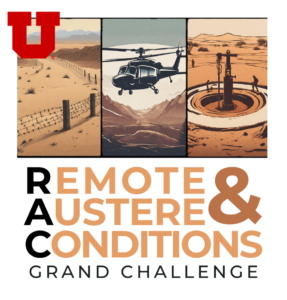
Internal Deadline: April 2nd, 2024
Dear colleagues,
The University of Utah supports research, engages communities, and cares for patients across the largest geographical area in the U.S. The intermountain region is vast, sparsely populated with varying geographical conditions, severe access issues, and supported by limited infrastructure and resources.
From a research standpoint, these challenges make the intermountain region an ideal location for studying remote and austere conditions. To that end, the University of Utah Vice President for Research Office is excited to announce the Remote and Austere Conditions (RAC) Grand Challenge initiative. This initiative seeks to fund innovative research projects that focus on developing novel techniques, technologies, and methods for remote and austere environments.
The U.S. Army defines remote and austere conditions as “environments where access to clean water, electricity, and to a fixed or mobile medical facility is significantly degraded or denied, and where diagnostic and treatment resources and medical personnel are unavailable or limited for extended periods of time.” These conditions are common in frontier counties, areas with less than 20 people per square mile and a travel time of at least 30 minutes to basic services. Approximately 56% of the U.S. is frontier and the majority of that is concentrated in the intermountain region.
The Remote & Austere Conditions (RAC) Grand Challenge funds innovative responses to the threats and obstacles of these extreme environments. From advances in communication and robotics, breakthroughs in patient triage and patient resuscitation, to effective behavioral and community interventions, the RAC Grand Challenge seeks bold approaches to enhance the safety and well-being of populations living in challenging areas with limited or no resources.
Proposals can focus on any challenge within remote and austere conditions. Example topics include power generation; resuscitation techniques; environmental hazards; telemedicine and digital health; remote education and learning; portable diagnostic tools; preparation for the austere; AI and ML; low-energy high-output remote sensors; and training, simulation, and upfitting. As noted, these are simply examples of possible research topics to be explored for the RAC Grand Challenge. From a topic standpoint, research teams are encouraged to push the boundaries and seek to continually expand what it means to conduct research focused on remote and austere conditions.
To participate in the RAC Grand Challenge, teams must submit a brief proposal by 11:59pm MST on April 2nd, 2024. A review committee will select approximately 20 teams to advance to a pitch stage where the project will be presented to a panel of judges in June 2024 (session 1) or October 2024 (session 2).
The RAC Grand Challenge begins with a kickoff event at 12:30pm on January 19th followed by a series of team-building events. Weekly meetings will commence in February of 2024 to help build RAC teams.
During the pitch competition, the Grand Challenge will be judged by a panel of experts from relevant scientific fields, industry, and funding agencies with a direct interest in remote and austere conditions. Selected teams will be funded for the 2024-2025 academic school year. Awards will be up to $250,000 of direct costs, and indirect costs will not be provided. All funded teams are expected to seek extramural support within 180 days after the end of the award.
Please see the RFP for a full timeline of events, eligibility criteria, required application materials, and more. Internal proposals for RAC are due by 11:59pm MST on Tuesday, April 2nd, 2024.
Applications must be submitted HERE.
For more information or questions regarding the RAC Grand Challenge, please click HERE. For questions about using InfoReady, please contact VPR Grants.
Thank you.
